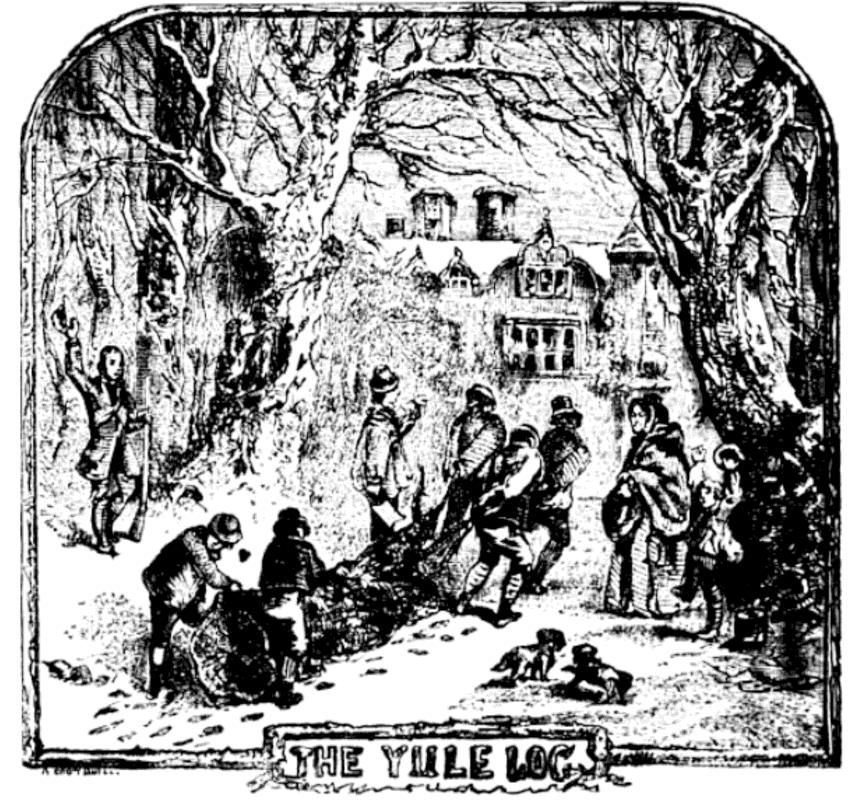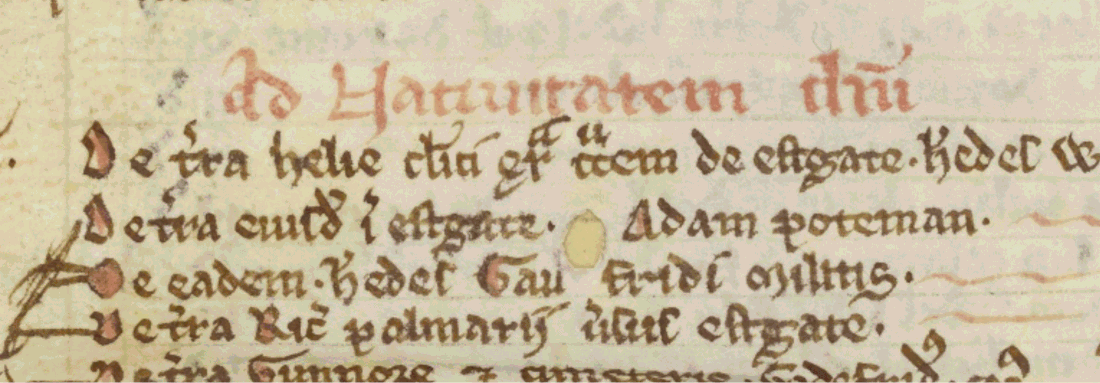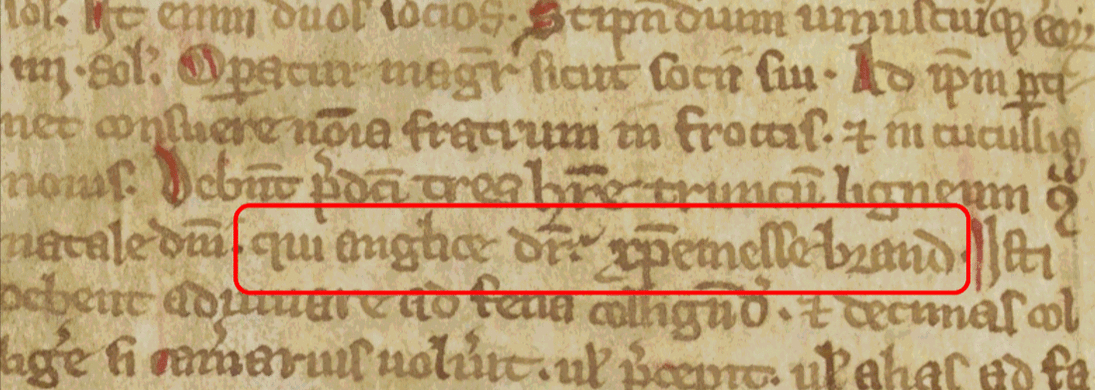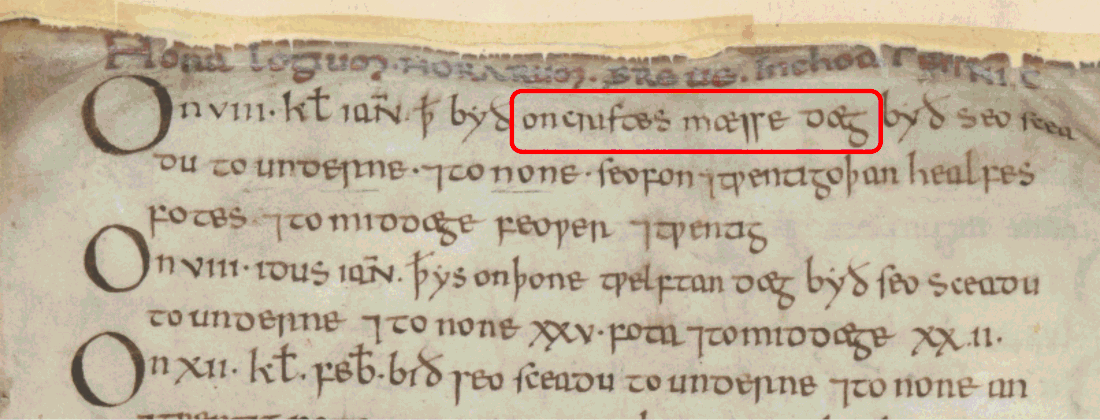|
Dr Monk looks at the origin of the word 'Christmas' and finds out what thirteenth-century servants got for Christmas Hello everyone. The Anglo-Saxon Monk has told me he is preoccupied with spiritual matters at present, so he has delegated the Christmas themed post to me. And, magnanimous as ever, he sends his blessings to you all. My post is inspired by a Facebook chat I was having yesterday with some friends about the word 'Christmas', which literally means 'Christ's Mass'. I said that I'd been translating a Latin custumal (a survey of manorial rents and services), from thirteenth-century Rochester, in which 'Nativity' (Latin Nativitas) was used, rather than 'Christmas'. To be more accurate, the full term used in the custumal is 'the Lord's Nativity' (Latin Nativitas Domini). On looking back at the manuscript this morning, I realised that 'the Lord's birthday' (Latin natal Domini) is also used. But in the shadowy recesses of my brain lay the half-conviction that I had at at some point come across the word 'Christmas' somewhere in the custumal. Yes, I mumbled to myself, it's something to do with the servants of the monks (the custumal was written by the monks of Rochester)... and a Christmas log. So I looked back at my translation of the section on the servants' duties and checked it against the relevant section of the manuscript. And this is what I came up with: 'The aforementioned three must have before the Lord's birthday a wooden log, which in English is called the Christmas brand.' ('Debent predicti tres habere truncum ligneum contra natale Domini, qui Anglice dicitur Christemesse brand.') The 'aforementioned three' were, in fact, the tailors (who doubled up as the tanners), the master tailor and his two associates. They were not the only ones to get the 'Christmas brand'; the two laundrymen, master and second rank, were also to have one, 'just like the tailors'. The etymology of the modern English word 'Christmas' actually dates back to the Anglo-Saxon period, deriving as it does from Old English cristesmæsse. Often you will see it claimed that the word first appeared in 1038, but this is not quite the case. It is found in a manuscript copied in the late 900s where it appears in a horology (a text which calculates the time from the lengths of shadows) in the phrase 'on Christmas Day' ('on Cristesmæsse dæg'). As someone who trained as an Anglo-Saxonist, I'm always interested to find when earlier English words were carried over from the Anglo-Saxon period (ending in 1066) into the post-Conquest world and beyond. What I find fascinating in this example is that not only were the English people of the thirteenth century still carrying on with the long-held Pagan tradition of burning the Christmas, or Yule, log (it was lit on Christmas Eve and continued burning for the twelve days of Christmas), but they were still calling the log by its Old English name, 'Christmas brand' (brand in Old English means 'fire'). Now to finish this Christmas research snippet, I thought I should let you know what else besides Christmas logs were given to the servants at Christmas by the Rochester monks. Half a pint of ale was given to the 8 hired men brought in, throughout the year, to help the church attendants with curtaining the altar and ringing the bells on processions. All the permanent servants – the millers, brewers, cooks, and others – were given a gift of money at Christmas (and also at Easter), 'the master a penny, the second-rank a halfpenny'. In addition, 'all have meat equally at Christmas or one penny'. And it was at Christmas the servants got half their annual wages. So, no doubt, being payday gave Christmas, if not an added sparkle, then at least a measure of relief to those hardworking folk. So, blessed readers (as the Anglo-Saxon Monk would say), whatever you are doing over the Christmas holiday, be you burning the Christmas brand or eating its chocolate equivalent, drinking a half-pint (or more) of Christmas ale, or cooking and eating your Christmas roast, have a very merry Christmas!
0 Comments
Your comment will be posted after it is approved.
Leave a Reply. |
Details
|





